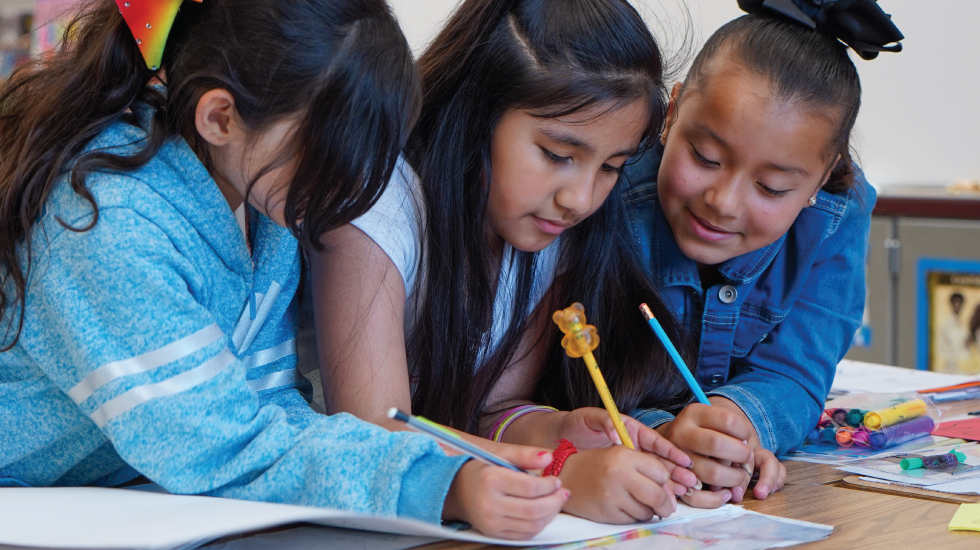
Science teachers and advocates know the value of high-quality science instruction: It engages students in learning and boosts academic progress in English language arts, math, and social studies. It advances equity, giving youth from all backgrounds a better opportunity to achieve educational success, secure high-wage employment, and join in civic life. It fuels economic growth built on innovation and skilled workers.
The California Next Generation Science Standards (NGSS), adopted in 2013, were a breakthrough for the state – and a testimony to the devotion of leaders who persevered across decades of diminished support for science as a core subject. The NGSS usher in an era in which young people will learn in the same ways that scientists work, an approach long endorsed by experts and supported by research.
The NGSS also represent a sea change for teachers and administrators, as student-led inquiry and investigation become the primary modes of learning. The state’s science champions – drawn from school districts, county and state education agencies, universities, professional learning providers, and a range of science-focused organizations – sprang into action to help translate the new standards into practice.
Together, their organizations are catalyzing NGSS implementation successes, orchestrating statewide professional learning for teachers and administrators, and shaping structures for full statewide expansion. Learn more about this unprecedented collaboration through a brief and companion video created from interviews with 23 of these champions, titled The Future of California Science.
Read the brief: The Future of California Science
These communications were prepared by the K-12 Alliance of WestEd. The Alliance, a respected California resource for educator professional development, led a Foundation-funded initiative to pilot, test, and share NGSS instructional practices statewide. (Access evaluation reports, an instructional toolkit, learning sequences, and a video highlighting this NGSS Early Implementers Initiative.)
By the 2019-20 school year, NGSS implementation was happening in every region of the state, with encouraging progress. Still, it was evident that much remained to do to involve all California districts, teachers and administrators, and students.
Then COVID-19 arrived, severely disrupting schools, education, and the daily lives of students and families. The pandemic was soon followed by a national reckoning with racial injustice sparked by the killing of George Floyd.
Now, as the 2020-21 academic year is underway, distance learning is the norm, and the stakes for quality science instruction are pronounced. Learning science is vital to undoing structural inequities in education, and to positioning every young person to participate in more just economic and civic systems. Yet, activating the crucial aspects of NGSS instruction – inquiry and investigation – can appear daunting when students are not physically present with their teachers or each other.
Reports on distance learning in spring 2020 show that science studies were often suspended in favor of mathematics and language arts. Pedagogies in all subject areas reverted to direct instruction over more effective, student-centered approaches.
At a time when many young people struggle to sustain interest in virtual school, NGSS instruction has special significance: Students like science, and want to engage in hands-on learning. Content generated through science lessons can in turn fuel participation in language arts, math, and other subjects.
The need for a scientifically literate populace is poignantly clear as a deadly virus spreads and the nation struggles to enact policy and conduct discourse that values what scientists are learning. Teachers and advocates know that science is key in this time of crisis, and that scientific thinking unlocks a host of educational and lifelong benefits for youth. They are working diligently, and creatively, to sustain focus on science as a core subject at all K-12 levels and provide quality instruction through virtual and other distance-learning means.
We applaud the efforts of today’s expanding, vibrant cohort of science champions, and we encourage decision makers at the local and state levels to ensure that science is central to the development of young people and society. As this Foundation nears its conclusion, we believe that NGSS instruction is a way forward for the country’s most populous and diverse state, and that California’s approach can provide a model and inspiration for adults everywhere who are devoted to realizing the promise of quality science learning for all young people.
